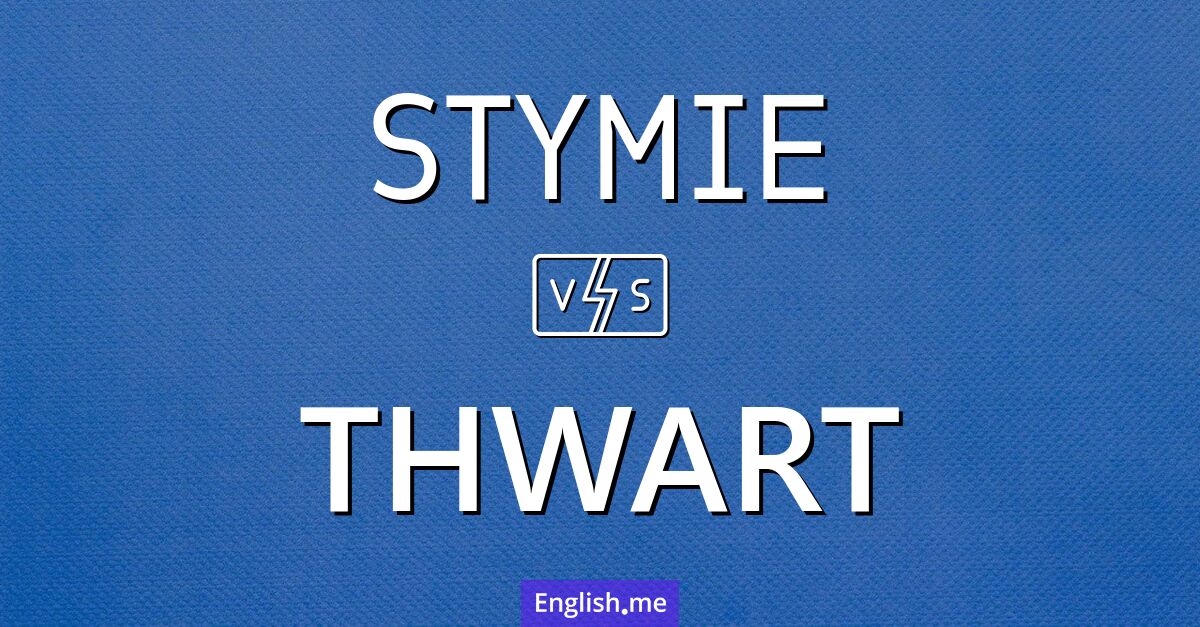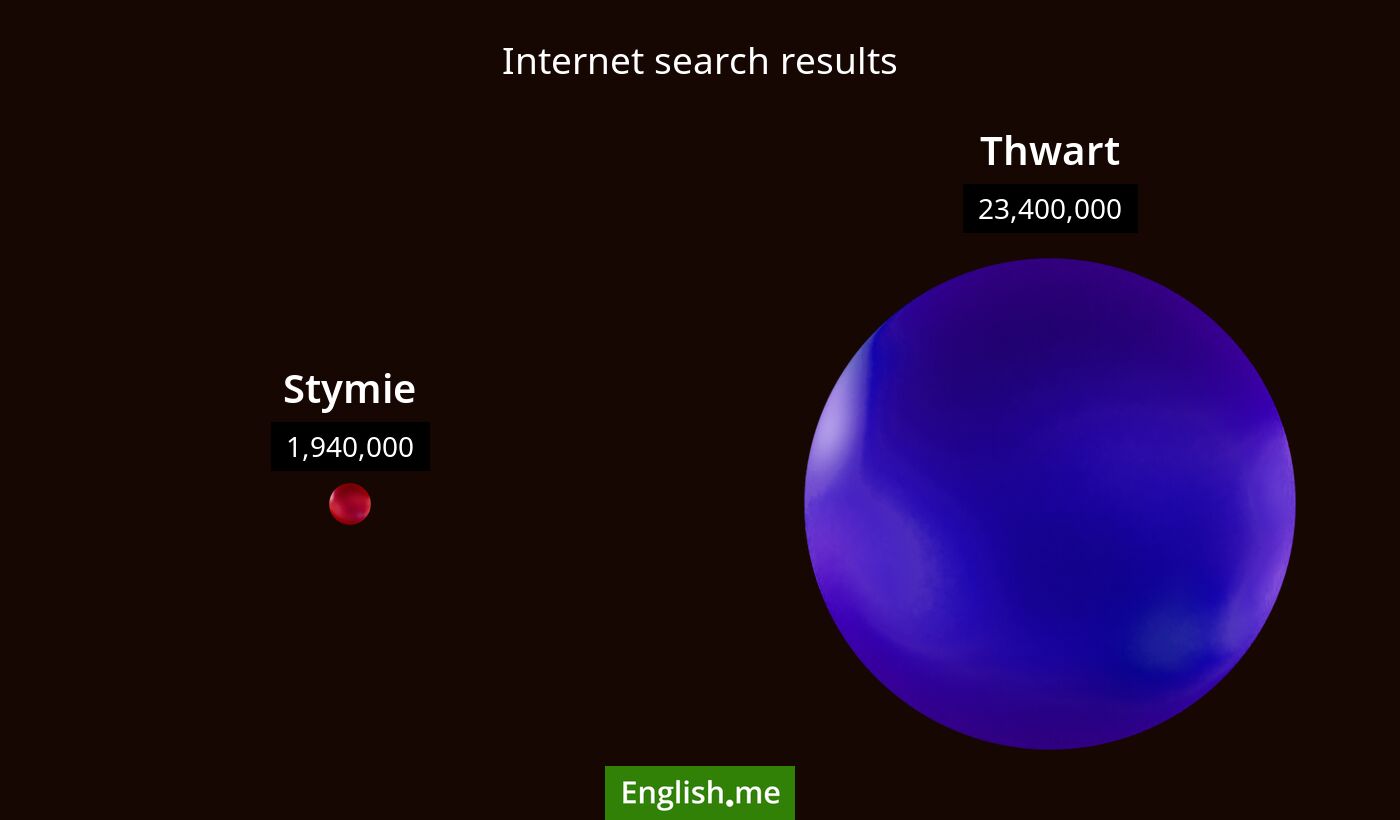"Stymie" vs. "thwart": a clash of constraints
Reviewed and edited by  Lloyd Cooper 19/11/2024, 20:37
Lloyd Cooper 19/11/2024, 20:37
English.me team member

 What is similar?
What is similar?
Both words "stymie" and "thwart" mean to prevent or hinder the progress or accomplishment of something.
 What is different?
What is different?
The word "stymie" is often used to describe situations where progress is blocked in a perplexing or stubborn way, more informal than "thwart." "Thwart" suggests a more active opposition or defeat of plans, often implying direct interference.
 Which one is more common?
Which one is more common?

 Examples of usage
Examples of usage
Stymie- The unexpected regulation change has stymied our project.
- We were stymied by the lack of clear instructions.
- Technical difficulties stymied our broadcast.
- She always manages to thwart their plans.
- They installed security measures to thwart any potential intruders.
- His efforts to thwart the investigation were unsuccessful.

 English
English español
español française
française italiano
italiano deutsche
deutsche 日本語
日本語 polski
polski česky
česky svenska
svenska Türkçe
Türkçe Nederlands
Nederlands